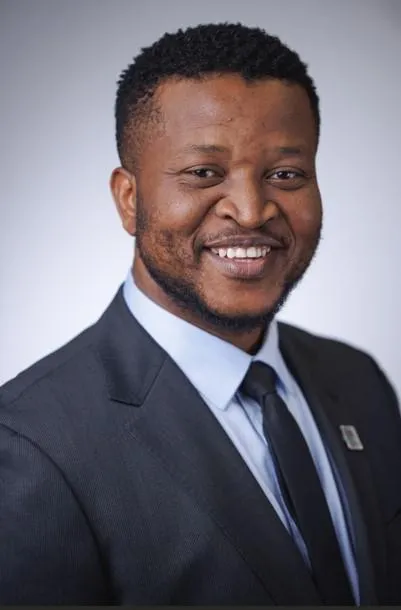The learning board: continuous education as a governance imperative
CORPORATE GOVERNANCE

The pace of change in technology, climate governance, geopolitical tensions, stakeholder expectations, and regulatory shifts demands more than static knowledge. It calls for a governance mindset that embraces learning as a strategic necessity.
Image: AI Lab
Nqobani Mzizi
In today’s dynamic environment, a board’s effectiveness is measured not just by what its members know, but by how deliberately they continue to learn. Directors may be appointed for their experience, but without renewal, that experience quickly becomes outdated. Yet in many organisations, director education is reduced to a box-ticking exercise, limited to induction packs, technical updates or ad hoc compliance briefings. This is governance at its most passive. In truth, boards should embody the traits of a learning organisation: adaptive, inquisitive, self-aware and committed to continuous renewal.
An informed board acknowledges that its fiduciary duties exist in a world of fast-moving risks and opportunities. The pace of change in technology, climate governance, geopolitical tensions, stakeholder expectations, and regulatory shifts demands more than static knowledge. It calls for a governance mindset that embraces learning as a strategic necessity. The proof is stark: a 2023 PwC South Africa Director Survey revealed that 68% of South African directors admit their boards are outmatched by technological disruption, yet a mere 31% invest in formal upskilling.
Directors cannot rely solely on legacy knowledge or past achievements. The role has evolved, and so must those who occupy it. In 2022, boards spent less than 5% of their time discussing climate risks. The KZN floods that year cost R50 billion. The gap between governance and reality is unsustainable. Boards that fail to learn, fail to lead.
The concept of a learning organisation, popularised by Peter Senge, rests on disciplines such as systems thinking, personal mastery, mental models and team learning. These principles are equally applicable to governance. Boards that model intellectual agility are better positioned to anticipate risk, adapt to change and shape resilient organisations. They do not wait for a crisis to revisit assumptions. They engage proactively, ask difficult questions and challenge entrenched thinking.
Yet becoming a board committed to continuous renewal does not happen by accident. It requires deliberate investment. Formal director development programmes are one part of the equation, but not the whole. Ongoing capacity building must be embedded into board culture and processes. It includes reflections after key decisions, cross-committee peer learning, exposure to external perspectives and periodic assessments of knowledge gaps. It also includes openness to uncomfortable truths, recognising when the board lacks diversity of thought or when market and strategy assumptions are no longer fit for purpose.
One of the clearest signals of a board's commitment to growth is how it allocates time. Agendas dominated by compliance reviews and operational reports leave little space for strategic thinking or capacity building. A forward-looking board agenda should reserve time for horizon scanning, scenario planning and trend deep dives, from generative AI and cybersecurity to climate disclosures, social unrest and institutional reputation. The question is not whether these issues are important, but whether the board is equipped to govern them well.
Governance frameworks codify this imperative. King IV in South Africa explicitly underscores the need for ongoing director development as integral to ethical and effective leadership. Principle 1 highlights the responsibility of the board to lead with competence and awareness, while Principle 7 calls on governing bodies to ensure that their composition, skills, experience and capacity align with the organisation’s needs. Continuous learning is, therefore, not an optional extra, but a governance requirement rooted in accountability and future fitness.
Importantly, this learning orientation must go beyond individual directors. It must shape the board as a collective. The best boards are not echo chambers of technical expertise, but dynamic forums of inquiry. They welcome diverse viewpoints, interrogate blind spots and evolve with the organisation they serve. Adaptive boards are also better stewards of succession, identifying gaps and mentoring future leaders with clarity and foresight. They understand that board continuity is not just about filling seats but about transferring wisdom.
Some companies have introduced directors’ retreats, not as ceremonial off-sites, but as serious opportunities for immersive engagement with new ideas. Others rotate committee chairs to foster cross-learning and reduce siloed thinking. A growing number of boards are also creating advisory panels with academics, technologists or emerging market experts who present independent insights and challenge institutional orthodoxy.
Boards that operate as communities of growth also tend to approach self-evaluation differently. Rather than relying on template-based questionnaires, they view assessments as opportunities to identify development areas, improve dynamics and deepen collective performance. The value lies not only in the review itself, but in the courage to act on its findings.
In an age of complexity and disruption, the evolving board is not a luxury. It is a governance necessity. It strengthens oversight not only through technical competence, but through curiosity, humility and responsiveness. It builds institutional capacity not merely to react, but to adapt and regenerate in the face of change.
To lead well in this environment is to remain teachable. An adaptive board recognises that effective governance is not about knowing everything, but about cultivating a posture of inquiry, one that seeks out what matters most before the next disruption makes it urgent.
Board effectiveness demands self-examination. Boards must ask:
- Are we building knowledge renewal into our board agenda, or treating it as an after thought?
- Do our development efforts build strategic agility, or simply refresh technical compliance?
- Are we actively drawing on diverse, independent perspectives to challenge blindspots?
- If our approach to knowledge renewal were visible to stakeholders, would it inspire confidence or concern?
Ultimately, a board’s legacy will rest not on its past expertise, but on the learning culture it fostered and how well it prepared the organisation for the future.

Nqobani Mzizi is a Professional Accountant (SA), Cert.Dir (IoDSA) and an Academic.
Image: Supplied
* Nqobani Mzizi is a Professional Accountant (SA), Cert.Dir (IoDSA) and an Academic.
** The views expressed do not necessarily reflect the views of IOL or Independent Media.
BUSINESS REPORT